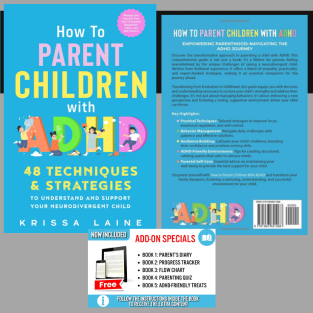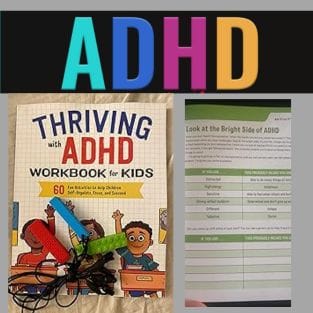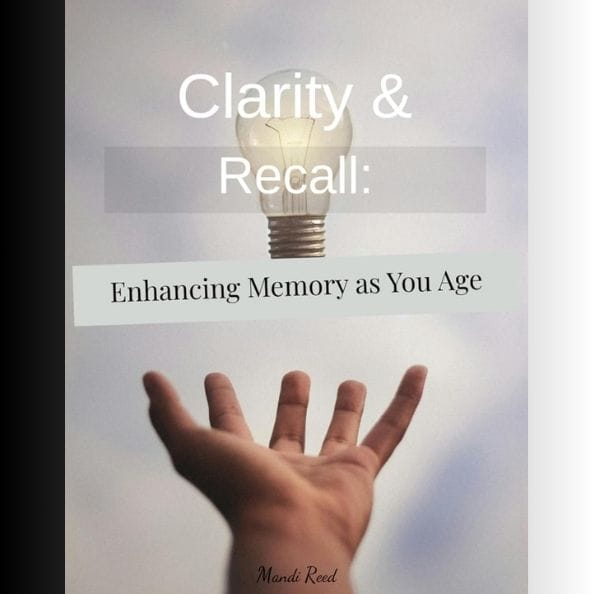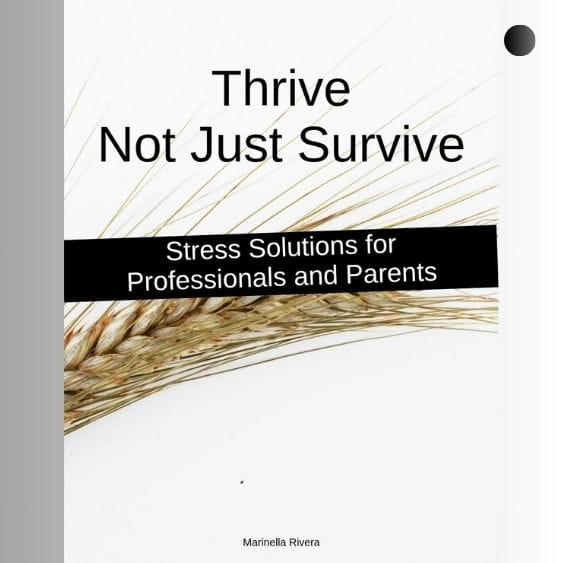Key Takeaways:
- Understanding ADHD is crucial for effective parenting.
- Consistent routines and clear communication can significantly help.
- Professional support and community resources are invaluable.
Understanding ADHD
Attention Deficit Hyperactivity Disorder (ADHD) is a neurodevelopmental disorder that affects a child's ability to focus, control impulses, and manage energy levels.
It's like trying to catch a whirlwind in a jar; the energy and thoughts are everywhere.
Recognizing the symptoms early can make a world of difference in managing the condition. Common signs which can vary in intensity from one child to another include
- inattention,
- hyperactivity, and
- impulsivity.
Parents often find themselves on a rollercoaster ride, dealing with the highs and lows of their child's behavior. It's essential to remember that ADHD is not a result of poor parenting or a lack of discipline.
Instead, it's a complex condition that requires understanding, patience, and strategic approaches to help the child thrive.
Establishing Consistent Routines
Children with ADHD thrive on structure and predictability ...
Establishing a consistent daily routine can help them feel secure and reduce anxiety. Think of it as creating a roadmap for the day, where each activity has its designated time and place. This structure helps the child know what to expect and when, smoothing transitions and reducing behavioral issues.
For instance,
- setting specific times for homework, meals, and bedtime can create a sense of order.
- Visual schedules or checklists can be particularly helpful, allowing the child to see and track their progress.
- Consistency is key; even small deviations can cause significant disruptions, so it's crucial to stick to the routine as closely as possible.
Here's a good resource to reference ... it's been reviewed to be "more than just a guide; it’s a compassionate companion through the complexities of parenting a child with ADHD".

Clear and Effective Communication
Communication is the cornerstone of any relationship, and it's especially vital when parenting a child with ADHD. Clear, concise instructions can help the child understand what is expected of them.
*Instead of saying, "Clean your room," break it down into smaller tasks like, "Put your toys in the bin," and "Make your bed." This approach makes the task less overwhelming and more manageable.
Active listening is equally important. Children with ADHD often feel misunderstood or ignored.
*Taking the time to listen to their concerns and validate their feelings can build trust and improve cooperation. Using positive reinforcement and praise for their efforts, no matter how small, can boost their self-esteem and encourage better behavior.
Managing Impulsivity and Hyperactivity
Impulsivity and hyperactivity are hallmark symptoms of ADHD, often leading to disruptive behavior. Finding ways to channel this energy constructively can make a significant difference.
*Physical activities like sports, dance, or even simple exercises can help burn off excess energy and improve focus.
Creating a calm and distraction-free environment for tasks that require concentration, such as homework, can also be beneficial. Using tools like fidget toys or stress balls can provide a physical outlet for their energy without causing disruption.
*It's about finding the right balance and strategies that work for your child.
Here's a resource that's been reviewed to work even with adolescents, to be "the right book to help parents develop a behavioral parenting plan ..."

Building Social Skills
Children with ADHD often struggle with social interactions, leading to feelings of isolation or rejection.
Teaching social skills can help them navigate friendships and social situations more effectively. Role-playing different scenarios, such as sharing toys or taking turns, can provide practical experience in a safe environment.
Encouraging participation in group activities or clubs that interest them can also help build social skills and confidence.
*It's important to monitor these interactions and provide guidance as needed, helping them understand social cues and appropriate responses. Building these skills takes time and patience, but the rewards are well worth the effort.
Academic Support and Strategies
School can be a challenging environment for children with ADHD. Working closely with teachers and school staff to develop an Individualized Education Plan (IEP) or 504 Plan can provide the necessary accommodations to support their learning.
*These plans can include modifications like extended time on tests, breaks during class, or seating arrangements that minimize distractions.
At home, creating a dedicated homework space free from distractions can help improve focus. Breaking assignments into smaller, manageable tasks and using timers can also make homework less daunting.
*Regular communication with teachers can ensure that any issues are addressed promptly, creating a supportive learning environment.
Emotional and Behavioral Therapy
Therapy can be a valuable tool in managing ADHD.
Cognitive-behavioral therapy (CBT) helps children develop coping strategies and improve their emotional regulation. It's like giving them a toolbox filled with practical tools to handle various situations.
Therapy can also address any coexisting conditions like anxiety or depression, which are common in children with ADHD.
Family therapy can also be beneficial, providing a space for parents and siblings to express their feelings and learn strategies to support their loved ones ...
*It's about creating a cohesive support system where everyone understands their role and works together to create a positive environment.
Medication Management
Medication can be an effective part of an ADHD treatment plan, helping to manage symptoms and improve daily functioning.
Stimulant medications like Ritalin or Adderall are commonly prescribed, but non-stimulant options are also available.
*It's essential to work closely with a healthcare provider to find the right medication and dosage for your child.
Monitoring the effects of medication and any potential side effects is crucial. Regular follow-ups with the healthcare provider can ensure that the treatment remains effective and adjustments are made as needed.
*Medication is not a cure but a tool that, when used correctly, can significantly improve the quality of life for children with ADHD.
Parental Self-Care
Parenting a child with ADHD can be exhausting and stressful. It's vital for parents to take care of their own mental and physical health ... Think of it as putting on your oxygen mask first before helping others.
Taking time for self-care activities, whether it's a hobby, exercise, or simply a quiet moment alone, can recharge your batteries and improve your ability to support your child.
Seeking support from other parents in similar situations can also be incredibly helpful. Support groups or online communities provide a space to share experiences, advice, and encouragement.
*Remember, you don't have to do it alone; there are resources and people ready to help.
Leveraging Community Resources
Community resources can provide additional support and services for families dealing with ADHD.
Local organizations, support groups, and educational workshops can offer valuable information and assistance. Schools often have resources like counseling services or special education programs that can support your child's needs.
Online resources, such as websites and forums dedicated to ADHD, can also provide a wealth of information and connect you with other parents and professionals.
*Utilizing these resources can help you stay informed and find new strategies to support your child effectively.
FAQ
Q: What are the early signs of ADHD in children?
A: Early signs of ADHD in children include difficulty paying attention, excessive fidgeting or restlessness, impulsive behavior, and trouble following instructions.
These symptoms can vary in intensity and may become more noticeable when the child starts school.
Q: How can I help my child with ADHD succeed in school?
A: Working closely with teachers to develop an Individualized Education Plan (IEP) or 504 Plan can provide necessary accommodations.
Creating a structured homework routine, breaking tasks into smaller steps, and using tools like timers can also help improve focus and academic performance.
Q: Are there any natural remedies for managing ADHD symptoms?
A: While medication is a common treatment, some parents explore natural remedies like dietary changes, supplements, and behavioral therapies.
It's important to consult with a healthcare provider before starting any alternative treatments to ensure they are safe and effective for your child.
Summing Up
Parenting a child with ADHD presents unique challenges, but with the right strategies and support, it is possible to create a positive and nurturing environment.
Understanding the condition, establishing routines, clear communication, and leveraging professional and community resources are key components in managing ADHD effectively.
Remember, every child is different, and finding what works best for your family is a journey that requires patience, persistence, and a lot of love.
Disclaimer. When you purchase through links on our site, we may earn an affiliate commission (that's how we stay in business). FirstFewFinds may use affiliate links to products and services on retailer sites for which we can receive compensation if you click on those links or make purchases through them. We hope you find the list of our first few finds useful and helpful. Each product on our list has been carefully chosen by our writers and all opinions are our own. Check your choices and enjoy finding exactly what you need!








